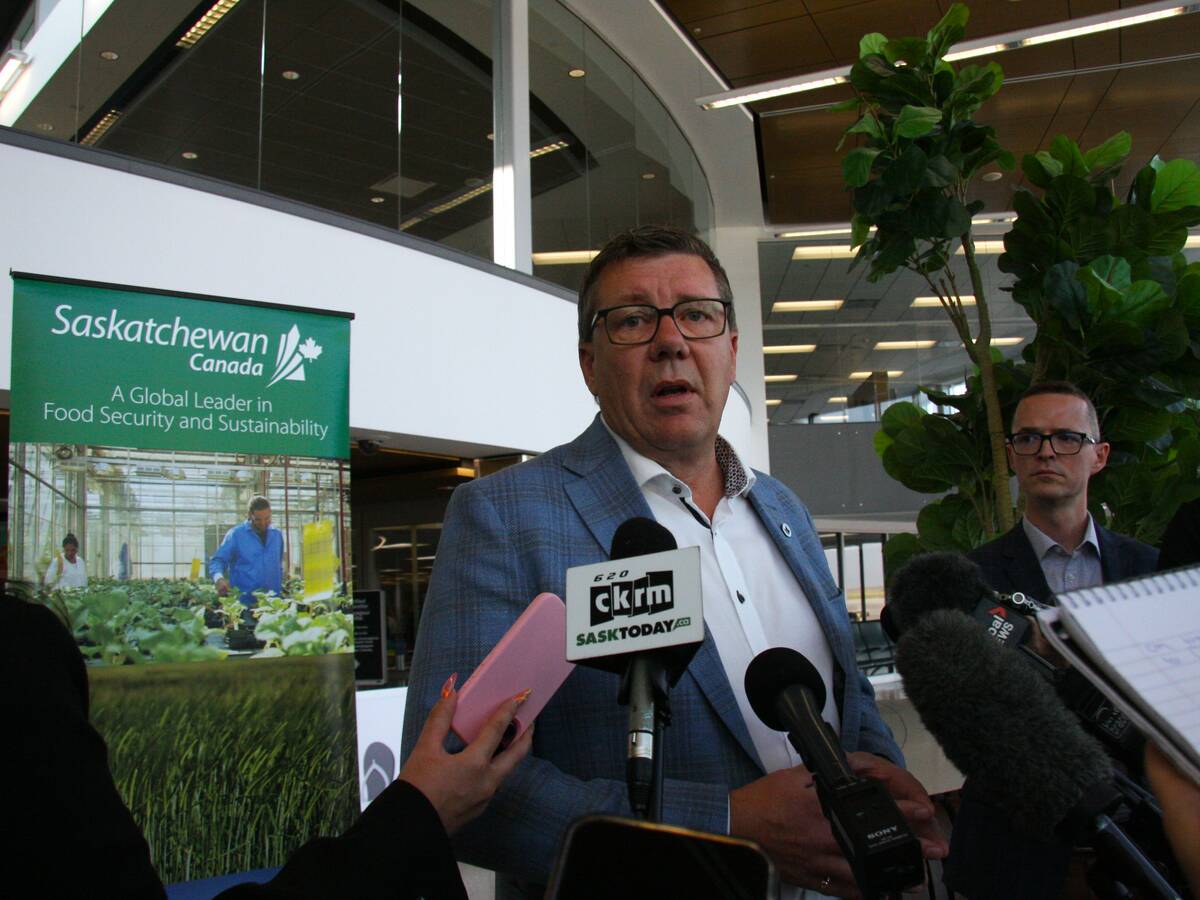Finance minister Ralph Goodale never once mentioned the “a” word as he announced $39 billion in new spending or tax cuts over the next five years in a pre-election mini-budget Nov. 14.
Despite an intense farm lobby for help this autumn, a looming grains and oilseeds sector income crisis and a government concession that Ottawa will be awash in multi-billion dollar surpluses for at least the next five years, including more than $8 billion this year, Goodale did not announce help for agriculture.
“I think it’s appalling,” Canadian Federation of Agriculture president Bob Friesen said Nov. 14. “We have made it very clear that agriculture, particularly grains and oilseeds, is heading for another year of losses and there is a hole of at least $1.9 billion a year. It is appalling they did not use this window and those surpluses to offer some hope.”
Read Also

Moe says China trip laid ground work
Saskatchewan premier says signals of moving forward on canola tariffs can be seen in moves from Chinese and Canadian governments
Dawson Creek, B.C., farmer Jim Smolik, president of Grain Growers of Canada, said it was sadly predictable.
“It is not surprising,” he said. “It is concerning that agriculture was not mentioned despite the obvious need and the fact that there are rumours of a package coming. I think they missed a real opportunity to send a signal and if we are into an election campaign, that will give them an excuse to delay dealing with it. I guess the Liberals don’t have many rural seats to worry about.”
Conservative agriculture critic Diane Finley said it shows “Liberal disdain” for rural Canada and its issues.
“The Liberals are an urban party and this proves it,” she said. “They divide up $39 billion and not a penny for agriculture. We should be surprised but frankly, we’re not.”
In an “economic outlook” statement that was beefed up with spending and tax cut promises as a potential winter election loomed, Goodale said projected surpluses over the next five years will be spent shoring up research, education and international trade while offering billions of dollars in tax cuts through 2010.
The one lonely reference to rural Canada was a re-announcement of a promise to expand high-speed internet service into the countryside with a commitment to spend $100 million.
The closest Goodale came to talking about agricultural issues was his promise before the finance committee Nov. 14 to promote trade, to insist that the Americans live up to free trade agreements they have signed and to promise support for domestic producers when it does not work.
“When our farmers or our forestry workers are hurt by foreign subsidies or the violation of trade agreements, this government will do its very best to help,” said the finance minister.
That was good enough for Liberal MP Wayne Easter, parliamentary secretary to agriculture minister Andy Mitchell and a government advocate of more help for farmers.
“I think the finance minister was signaling that we will be there for farmers,” Easter said Nov. 14. “We’ll be there when there is a need and we know there is a need right now.”
But for CFA president Friesen, the signal was far too subtle.
“We are going to be increasing our pressure,” he said. “Alarm bells are ringing in Ottawa, we are told, and they should be ringing about the farm income crisis and the erosion of rural infrastructure because of that. There needs to be a more explicit recognition of the importance of agriculture and the necessity of an immediate investment to sustain the sector. And it should be done unapologetically.”














